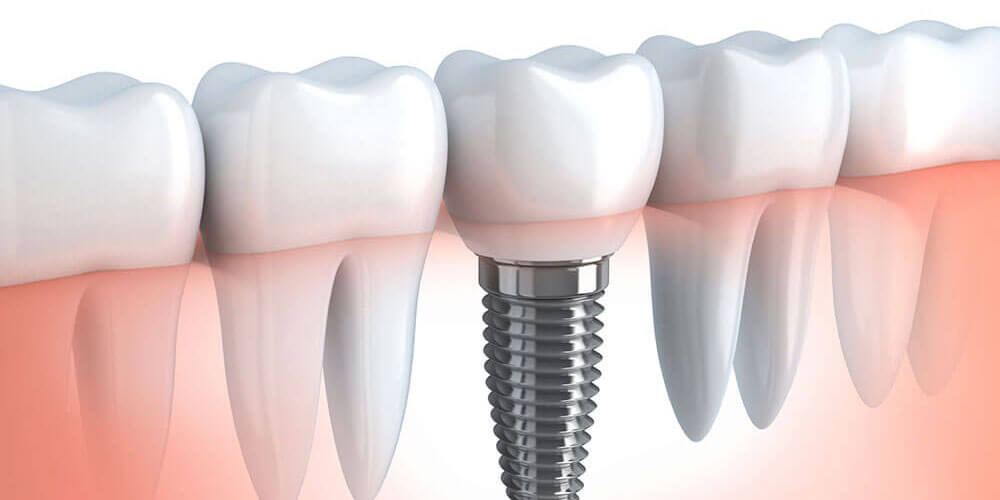Dental implants require the same care as real teeth, including brushing, flossing, rinsing with an antibacterial mouthwash, and regular dental check-ups.
The root-form implant is the most common type, and it consists of three main components:
- Implant screw: This part of the implant is made of titanium and is surgically placed in the bone. The titanium is accepted by the body extremely well and fuses with the bone (called osseointegration) during the healing process.
- Abutment: This is a metal connector that attaches to the top of the implant screw and serves as the base for a dental crown, bridge, or denture.
- Crown: The crown is the manufactured tooth that fits on top of the abutment. Bridges and dentures can also be secured to the abutment. The placement of the crown, bridge, or denture is the final step of the implant process.
What are the advantages of Dental Implants
- They closely resemble natural teeth and fuse with bone for permanent stability.
- Implants eliminate the need for slipping dentures and allow for normal speech.
- They function like natural teeth, allowing for comfortable eating and improved self-confidence.
- They do not require altering neighboring teeth, preserving overall oral health.
- They are durable and can last a lifetime with proper care.
Commonly Asked Questions
What is the success rate for Dental Implants?
Generally speaking, dental implants have a high success rate of 90-95% for individuals who are healthy and maintain good oral hygiene. The success rate of dental implants can vary depending on factors such as an individual’s overall health and oral hygiene habits.
Who can get dental implants?
Dental implants are typically suitable for most healthy adults. Your dentist will determine if they are the right option for you after a checkup.
Is getting dental implants painful?
No, the procedure is usually performed under local anesthesia, and it typically takes place in a dentist’s clinic.
How long is the recovery time for dental implants?
Most patients are able to return to work the day after the procedure, unless otherwise advised by their dentist. Any minor discomfort can be managed with medication prescribed by the dentist.
What are the consequences of Not Replacing a Missing Tooth?
When a tooth is missing, the jawbone in that area can start to shrink due to lack of stimulation. This can change the appearance of your smile and even alter the structure of your face, making you appear older. Additionally, over time, the surrounding teeth may become loose as well.
How do dental implants compare to other medical procedures in terms of long-term benefits?
In the long run, dental implants are considered more cost-effective and beneficial compared to other forms of treatment. Dental implants require less maintenance and provide a stable, secure, and confidence-boosting smile.
Please book an appointment with our dentists to see if dental implants are the right option for you. Dentists at Oakridge provide excellent dental implant services to our patients in Vancouver.
If you are looking for a dentist in Vancouver for Dental Implants please call us at (604) 261-8262 or book an appointment online.


